 Petzlover
Petzlover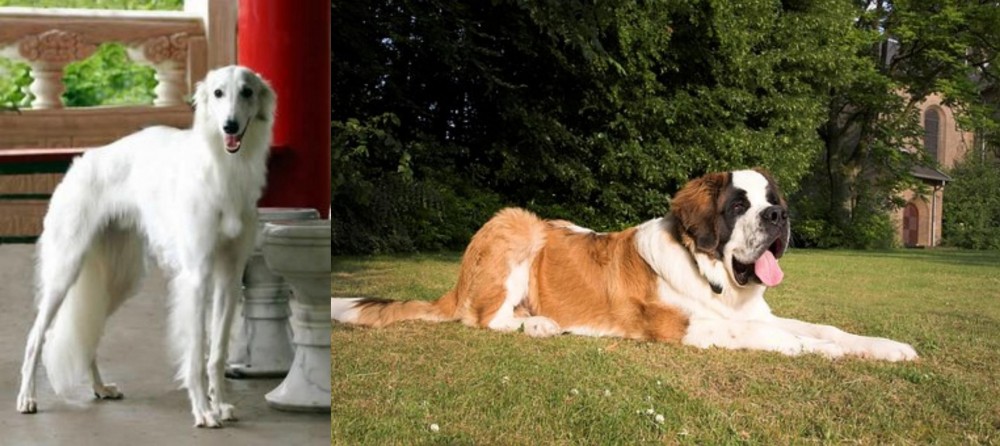 Silken Windhound is originated from United States but St. Bernard is originated from Switzerland. Silken Windhound may grow 11 cm / 4 inches shorter than St. Bernard. Silken Windhound may weigh 70 kg / 154 pounds lesser than St. Bernard. Silken Windhound may live 8 years more than St. Bernard. Silken Windhound may have less litter size than St. Bernard. Silken Windhound requires Low Maintenance. But St. Bernard requires High Maintenance
Silken Windhound is originated from United States but St. Bernard is originated from Switzerland. Silken Windhound may grow 11 cm / 4 inches shorter than St. Bernard. Silken Windhound may weigh 70 kg / 154 pounds lesser than St. Bernard. Silken Windhound may live 8 years more than St. Bernard. Silken Windhound may have less litter size than St. Bernard. Silken Windhound requires Low Maintenance. But St. Bernard requires High Maintenance
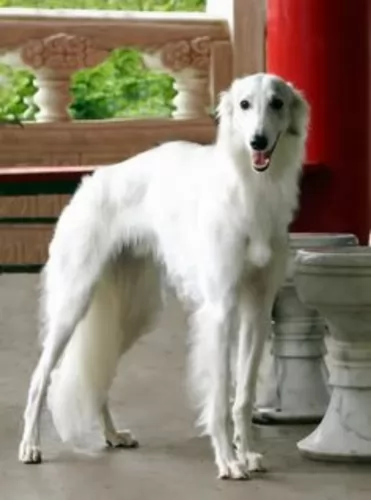 The Silken Windhound is a breed intentionally developed by Borzoi and Deerhound breeder, Francie Stull. Although the first litter of the Windhoud was not born until 1995, their development began in discussions ten years later. Bred as a cross between her beloved Deerhounds and Borzoi, the first Society for the breed formed in 1999 and they were recognized by the UKC in 2011.
The Silken Windhound is a breed intentionally developed by Borzoi and Deerhound breeder, Francie Stull. Although the first litter of the Windhoud was not born until 1995, their development began in discussions ten years later. Bred as a cross between her beloved Deerhounds and Borzoi, the first Society for the breed formed in 1999 and they were recognized by the UKC in 2011.
Ms. Stull wanted another breed for her kennel and decided on a smaller sighthound than her Borzoi. She wanted a long coat, a good temperament, good health, and possessing the same athletic abilities, grace and poise as the sighthounds that are larger. She developed the Silken Windhound based on this vision.
With this in mind, the kennel purchased the pick of a litter from the American and English Borzoi Champion bitch, Stillwater Virginia Reel. This puppy was eventually bred to Stillwater White Lightning and produced puppy that was a blue brindle. This dog, Stillwater Kristull Peacock, had the coat, personality and structure that Ms. Stull wanted for the new breed. She was bred to Deerhound Windsprite Autumnal Xenon to form the foundation for the Silken Windhound.
Over time champion Borzoi were bred with multi-generation Whippet based dogs and small Whippet from coursing and show lines. Finally, all of this work was rewarded with an incredible little sighthound to fit in the line of sighthounds between the giant and large breeds and the smaller whippet type breeds.
The Silken Windhound lives today in 24 different countries. They take their place in hound competitions all over the world in obedience, lure coursing, and racing. They are a Limited Stake Breed in the ASFA and competed with 40 other dogs in 2010. Then they were accepted by the NOFCA or National Open Filed Coursing Association, also in 2010. Finally, in 2011 they were fully accepted by the UKC.
The Silken Windhound is recognized in addition to the UKC, by the Dog Registry of America, the Rarities Inc., the American Canine Association, the Kennel Club of Slovenia, the American Pet Registry, Inc., the International Silken Windhound Society and the International, All-Breed Canine Association of America.
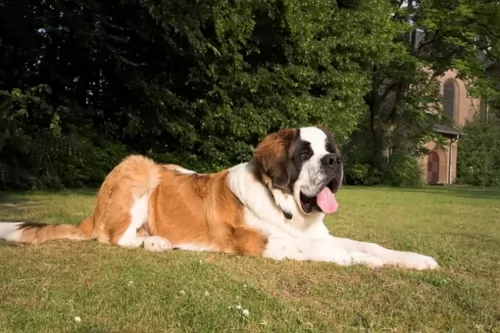 The St Bernard breed was once called the Alpine Cattle Dogs or the Alpine Mountain Dogs. They have always been farm dogs and mountain dogs in the French and Swiss Alps. They come from the border land of Switzerland and France. They were herding dogs, hunting, search and rescue, watchdogs and draft dogs.
The St Bernard breed was once called the Alpine Cattle Dogs or the Alpine Mountain Dogs. They have always been farm dogs and mountain dogs in the French and Swiss Alps. They come from the border land of Switzerland and France. They were herding dogs, hunting, search and rescue, watchdogs and draft dogs.
Their ancestors are considered to include the Sennenhunds and molosser breeds that came to the Alps with the ancient Romans. There are four Sennenhund breeds that are believed to have contributed to the original St. Bernard. These included the Greater Swiss Mountain Dog (Grosser Schweizer Sennenhund), the Appenzeller (Appenzeller Sennenhund), the Bernese Mountain Dog (Berner Sennenhund) and the Entlebucher Mountain Dog (Entlebucher Sennenhund) Today the St. Bernard is considered a Molossoid breed.
The first we know of the St. Bernard in any written records was in 1707 at the Great St. Bernard Pass and Great St. Bernard Hospice run by monks. There were found paintings of the dogs dating back into the late 1600’s. It is told that Barry saved upward of 100 people in the St. Bernard pass, and it is from these stories that the dogs gained their snow rescue reputation.
The St. Bernard of that time did not look like the St. Bernard does today as there was much crossbreeding. Many dogs dies during rescues in the avalanches of the mid 1800’s and so they Saint was crossed with the Newfoundland to preserve the breed. You can today see the resemblance in the build and looks of the two breeds. This cross brought about the long haired St. Bernard whose fur was too heavy for rescues.
The St. Bernards of mountain rescue fame were only about the size of a German Shepherd dog and were short haired. After crossing with the Newfoundland and moving into clubs and dogs shows, they have been bred to be much larger. Before the stud book was closed, it is thought that many larger breeds such as the Greater Swiss Mountain Dog, the English Mastiff, the Tibetan Mastiff, the Rottweiler, the Great Pyrenees, the English Bulldog, the Great Dane, the Bernese Mountain Dog, the Boxer and the Caucasian Oycharka all contributed to today’s St. Bernard.
In 1884 The Swiss St. Bernard Club was founded and the breed entered the Swiss Stud book as its first entry in 1884. It was 1888 when the standard was approved and the breed became the national dog of Switzerland. Before the name St. Bernard came to be common, these dogs might be called, Barry Dogs, Alepnmastiff, Noble Steeds or Saint Dogs.
The dogs came to England in the early 1800s and to the United States soon after. They were recognized by the European kennel clubs first and by the early 1900’s they were the most popular breed in the AKC.
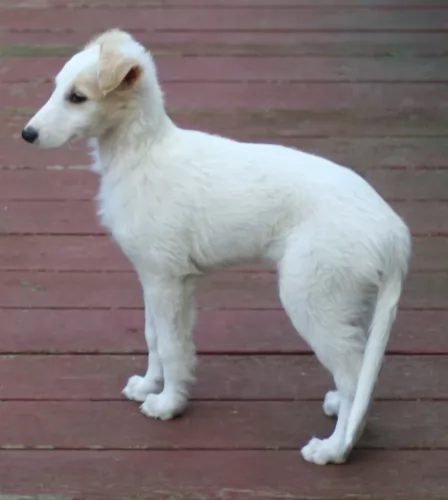 The Silken Windhound is a breed of beautiful, athletic medium sized dogs. They have the long coat, athletic build and classic lines of the sighthound/coursing dog. Just looking at them and you know they have strength, balance and grace in those medium sized bodies. Their running ability is exceptional. They perform well in the confirmation rings.
The Silken Windhound is a breed of beautiful, athletic medium sized dogs. They have the long coat, athletic build and classic lines of the sighthound/coursing dog. Just looking at them and you know they have strength, balance and grace in those medium sized bodies. Their running ability is exceptional. They perform well in the confirmation rings.
They are sine boned, balanced with smooth muscles – a sleek hardy looking dog. They have almond-shaped, large, dark eyes with small folded ears. Looking in their faces you see intelligence, friendliness and alertness. The head is long with a well balanced muzzle and a dark, slightly down-turned nose. Her lips are dark and full and her neck long and slender. The Silken Windhound must have a flexible loin because they have a gallop of double suspensions and are amazingly fast. A deep chest is also a must with a flexible, curving tail. Her legs are straight and long, as she is built for speed.
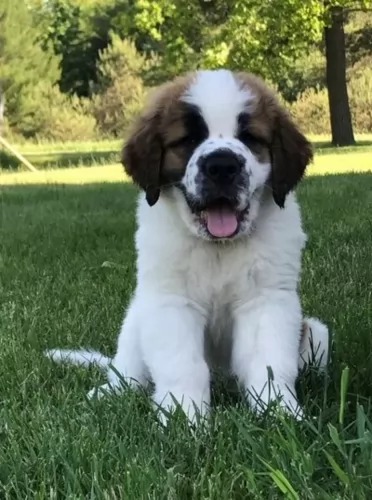 Today’s St. Bernard is not a large dog, he is a giant dog. Weighing in at 140-200 pounds and standing 28 to 35 inches tall, he is a lot of dog. Bred with mastiffs and large mountain dogs, they have proportional and powerful build. They are strong, sturdy and well muscled. They have either a smooth or rough (short or long) coat. Their eyes are brown or occasionally blue. They have tight lids, and square heads and muzzles.
Today’s St. Bernard is not a large dog, he is a giant dog. Weighing in at 140-200 pounds and standing 28 to 35 inches tall, he is a lot of dog. Bred with mastiffs and large mountain dogs, they have proportional and powerful build. They are strong, sturdy and well muscled. They have either a smooth or rough (short or long) coat. Their eyes are brown or occasionally blue. They have tight lids, and square heads and muzzles.
There are two coat types called smooth and rough, or short and long. The smooth shorter coat is tough, flat and close against the body and the long, rough coat is dense, wavy and heavy around the legs, neck and ruff. Both types have long tails that hang low and are heavy. Saints are known to slobber, drool and snore.
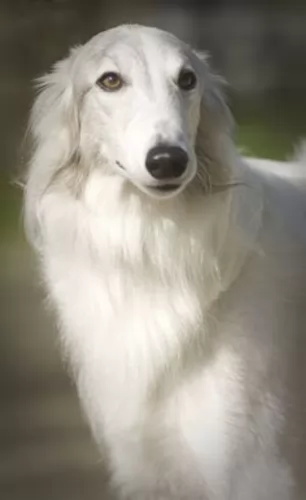 1. Children friendliness – they are great with children and would romp with them all day.
1. Children friendliness – they are great with children and would romp with them all day.
3.Adaptability Like most sighthounds they can be couch potatoes but being medium sized they can live just about anywhere as long as it is inside.
4.Learning ability - They are smart but their learning ability can be hampered by their stubbornness.
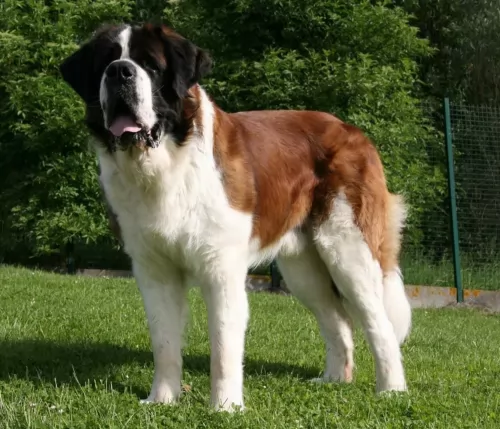 3.Adaptability no - these are giant dogs that need a lot of room. A large fenced yard or farm is best. They won’t do well in an apartment. They need exercise every day and loping around a yard is very good for them. They love to play in the snow, carry a backpack or pull a cart. They love to have a “job”
3.Adaptability no - these are giant dogs that need a lot of room. A large fenced yard or farm is best. They won’t do well in an apartment. They need exercise every day and loping around a yard is very good for them. They love to play in the snow, carry a backpack or pull a cart. They love to have a “job”
4.Learning ability – They are smart and highly trainable if motivated. They may appear lazy but they are just laid back and need a motivation.
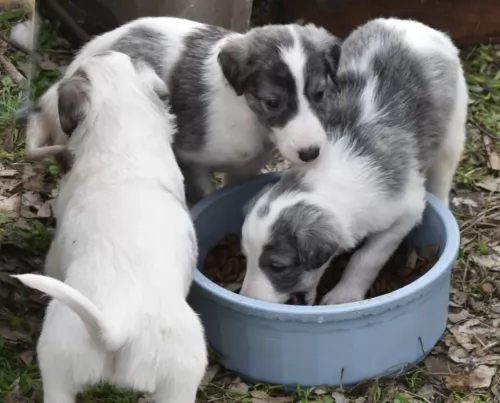 Most inherited diseases and conditions are rare. There is some drug related sensitivity, especially to ivermectin, and some dogs carry a MDR1 (multi-drug resistance gene) that is defective. Breeders are attempting to breed this out of the Silkens. A few other rare instances of concern include:
Most inherited diseases and conditions are rare. There is some drug related sensitivity, especially to ivermectin, and some dogs carry a MDR1 (multi-drug resistance gene) that is defective. Breeders are attempting to breed this out of the Silkens. A few other rare instances of concern include:
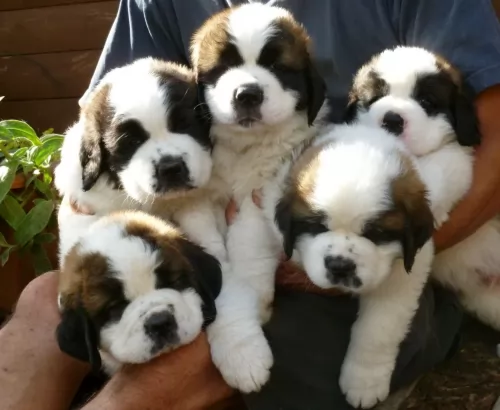 The first problem this breed faces is how fast they grow and gain weight. This can lead to serious health issues if not controlled. Their bones can be damaged by this excessively fast rate of growth. Other issues facing the breed include:
The first problem this breed faces is how fast they grow and gain weight. This can lead to serious health issues if not controlled. Their bones can be damaged by this excessively fast rate of growth. Other issues facing the breed include:
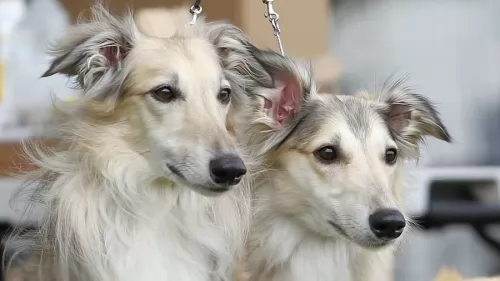 1.Feeding the puppy This is a medium sized, active breed. They need high quality dog food with plenty of protein. Feed them 3 times a day from a food made for high energy active medium sized breeds.
1.Feeding the puppy This is a medium sized, active breed. They need high quality dog food with plenty of protein. Feed them 3 times a day from a food made for high energy active medium sized breeds.
2.Feeding the adult - Feed them 2 times a day from a food made for high energy active medium sized breeds.
4. Games and Exercises The breed is active, and they love to run. They need daily exercise and they usually excel at flyball, agility, obedience and therapy. Obviously, they are very good at lure coursing and racing. They love to run or jog with you.
 1.Feeding the puppy – You want to control their growth. Do not overfeed, and make sure they exercise but not too much. Feed a high quality large breed puppy food 3-4 X a day in small amounts.
1.Feeding the puppy – You want to control their growth. Do not overfeed, and make sure they exercise but not too much. Feed a high quality large breed puppy food 3-4 X a day in small amounts.
2.Feeding the adult – The problem you face with he adult St. Bernard is the potential for Bloat. Don’t over feed. Don’t feed before or after strenuous exercise. Feed 2-3 X a day in smaller amounts to prevent Bloat. Feed a high quality breed specific food if possible or an extra large breed formula.
4. Games and Exercises They need exercise but not as much as you might think. The St. Bernard is a laid back lumbering character so don’t over exercise her. They enjoy weight and cart pulling but they are not athletes who enjoy frisbee or agility. Search and rescue trials and tracking trials are perfect athletic endeavors for them.